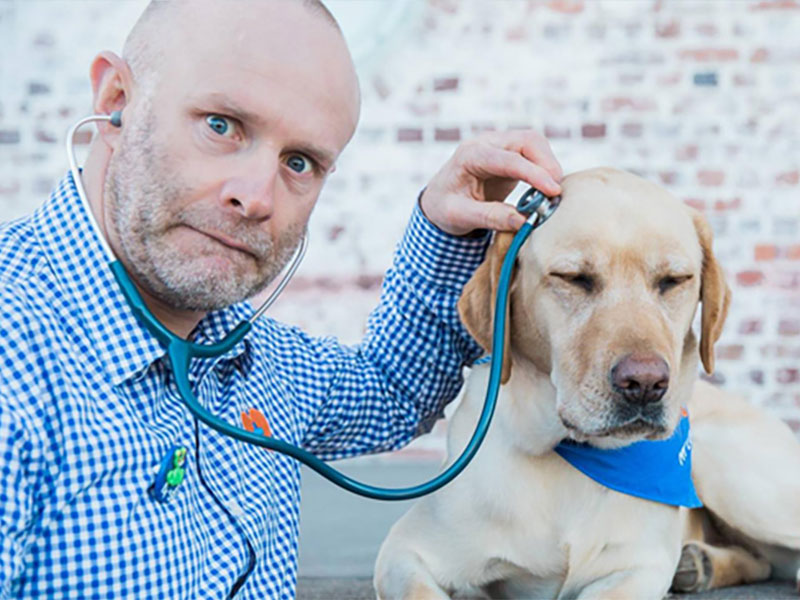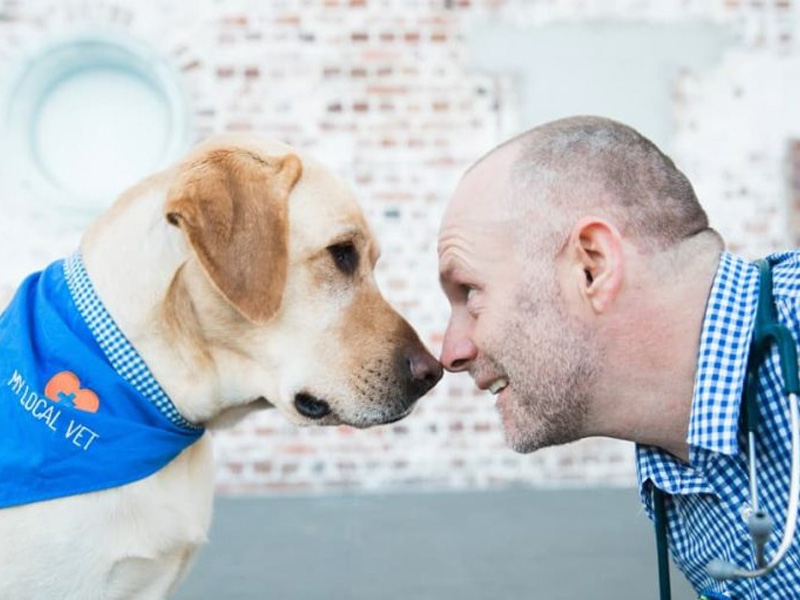Helpful Info
Answers to some frequently asked questions here at My Local Vet
Helpful Info from My Local Vet Capalaba
Got questions about your pet’s care? You’re not alone! Our Helpful Info page is packed with answers to common concerns, from vaccinations and nutrition to parasite prevention and general wellness.
Whether you’re a new pet owner or just looking for expert advice, we’re here to help you navigate every stage of your pet’s life. Check out our helpful hints and give your furry friend the best care possible!


Unwell Q & A
Q. I think my pet has a tick, what should I do?
A. Remove it immediately and bring your pet to the clinic without delay. Call us on your way here so we can prepare for your arrival and BRING THE TICK WITH YOU in a zip lock bag or Tupperware container. Even if you think your pet is not showing any symptoms of tick paralysis get them checked by one of our vets because often the signs can be subtle and if they do have ANY symptoms then WILL require treatment!
Q. My pet is vomiting. Should I bring him/her to the clinic for a check up?
A. There are some benign causes of vomiting and some very serious causes. In order to know what the cause is and treat it effectively you’re beloved fur-child will need to be examined by one of our vets.
Q. My fur-child is drinking more than usual. Is this a problem?
A. One really simple test you can perform at home is to measure your pet’s water intake over a 24hour period. Make sure you provide more water than they could possibly drink and measure the amount. After 24hrs measure the amount left and subtract this from the amount provided. Now, weigh your loved furry friend. Divide the volume of water consumed (in mLs) by his/her body weight (in Kgs). The result should be less than 70ml/kg. If the result is greater than this then Houston we have a problem! Call us to make an appointment and we will take it from there!
Q. My dog is coughing. What shall I do?
A. A cough can be caused by a contagious disease called “Canine Cough” but it can also be caused by heart disease, problems with the wind pipe, enlarged lymph nodes, tick paralysis and many other causes! In order to identify why your dog is coughing he/she will need to be examined by one of our vets.
Q. My furry friend has diarrhoea. What should I do?
A. Diarrhoea can be caused by something as mild as a change of diet or by something far more serious. In order to rule out the more severe causes one of our vets will need to examine your furry loved one.
Q. My fur-child is urinating more frequently what should I do?
A. There are many possible causes for increased urination and it is important to get a diagnosis early. Make an appointment as soon as possible so we can identify the cause and intervene.
Q. My pet is eating grass. What the?
A. Yes, it’s weird. We don’t really know why our furry little friends eat grass from time to time. Some theories suggest that their ancestors ate more vegetation so perhaps its just an evolutionary throwback. Our pets certainly do seem to eat more grass when they have a tummy upset so perhaps it changes the bacterial flora in their gut to help them recover… not sure. If your pet is not eating or if he/she is vomiting and eating grass they need to be examined by one of our vets.
Q. My fur-child is not eating. Should I be concerned?
A. This is a tricky question because it depends on the age and size of said fur-child and how long they haven’t eaten for. To answer it correctly you will need to discuss this with one of our vets.
General Health Q & A
Q. Do I need an appointment or can I just turn up?
A. We strongly recommend that you make an appointment to avoid waiting for an availability.
Q. What shouldn’t I feed my fur child?
A. Chocolate, Panadol, macadamia nuts, grapes, raisins, garlic, onions, arsenic, raw food diet.
Q. How often should I give my puppy an intestinal wormer and what brand should I use?
A. At My Local Vet we recommend milbemax all worming tablets for dogs and cats. You should give one (according to their body weight) every 2 weeks until 12 weeks of age then monthly until 6 months of age then three monthly for life.
Q. Heartworm, what is it and how do I prevent it?
A. Heartworm is a parasite transmitted by mosquitoes. It lives in the blood vessels of the heart and can cause irreparable damage to the cardiovascular system. It is important to use some kind of heart worm prevention. The easiest for dogs is an annual injection which we can do for you. For cats, it’s a topical treatment.
Q. What vaccine do I need for my dog?
A. At My Local Vet we tailor a vaccination regime for each individual patient in order to provide the most effective cover against disease. The particular brand of vaccine we use means we can offer an early finish in puppies so they can get outside and start socialising with other dogs sooner! Read more about Early Finish Vaccinations Here –> https://mylocalvet.com.au/animal/puppy-vaccinations-at-my-local-vet/
Q. What vaccine do I need for my cat?
A. This depends on your cat’s age and weather to not they have access to the outdoors. Our vets will tailor a vaccination regime specifically for your cat or kitten so they get the right vaccines for their life stage and lifestyle.
Q. How do I collect Urine from my cat?
A. That’s simple. Just swing past the vet clinic and collect some wax beads to use in place of your usual kitty litter. If you have more than one cat then leave your “problem kitty” in the bathroom over night with some bedding and a litter box containing the waxy beads. When kitty goes to the toilet you will have a sample in the litter tray! Drop it off to us same day if possible.
Q. Yikes, my fur-child has fleas. What do I do?
A. My Local Vet recommends Bravecto for comprehensive flea and tick prevention in dogs. If you have a cat then comforts is the way to go. Make sure you treat the environment as well because often there will be a lot more flea eggs and larvae in the carpet, their bedding, in between the floor boards etc than there will be on your pet. The best environmental treatment is professional fumigation

General Health Q & A
Q. Do I need an appointment or can I just turn up?
A. We strongly recommend that you make an appointment to avoid waiting for an availability.
Q. What shouldn’t I feed my fur child?
A. Chocolate, Panadol, macadamia nuts, grapes, raisins, garlic, onions, arsenic, raw food diet.
Q. How often should I give my puppy an intestinal wormer and what brand should I use?
A. At My Local Vet we recommend milbemax all worming tablets for dogs and cats. You should give one (according to their body weight) every 2 weeks until 12 weeks of age then monthly until 6 months of age then three monthly for life.
Q. Heartworm, what is it and how do I prevent it?
A. Heartworm is a parasite transmitted by mosquitoes. It lives in the blood vessels of the heart and can cause irreparable damage to the cardiovascular system. It is important to use some kind of heart worm prevention. The easiest for dogs is an annual injection which we can do for you. For cats, it’s a topical treatment.
Q. What vaccine do I need for my dog?
A. At My Local Vet we tailor a vaccination regime for each individual patient in order to provide the most effective cover against disease. The particular brand of vaccine we use means we can offer an early finish in puppies so they can get outside and start socialising with other dogs sooner! Read more about Early Finish Vaccinations Here –> https://mylocalvet.com.au/animal/puppy-vaccinations-at-my-local-vet/
Q. What vaccine do I need for my cat?
A. This depends on your cat’s age and weather to not they have access to the outdoors. Our vets will tailor a vaccination regime specifically for your cat or kitten so they get the right vaccines for their life stage and lifestyle.
Q. How do I collect Urine from my cat?
A. That’s simple. Just swing past the vet clinic and collect some wax beads to use in place of your usual kitty litter. If you have more than one cat then leave your “problem kitty” in the bathroom over night with some bedding and a litter box containing the waxy beads. When kitty goes to the toilet you will have a sample in the litter tray! Drop it off to us same day if possible.
Q. Yikes, my fur-child has fleas. What do I do?
A. My Local Vet recommends Bravecto for comprehensive flea and tick prevention in dogs. If you have a cat then comforts is the way to go. Make sure you treat the environment as well because often there will be a lot more flea eggs and larvae in the carpet, their bedding, in between the floor boards etc than there will be on your pet. The best environmental treatment is professional fumigation

Unwell Q & A
Q. I think my pet has a tick, what should I do?
A. Remove it immediately and bring your pet to the clinic without delay. Call us on your way here so we can prepare for your arrival and BRING THE TICK WITH YOU in a zip lock bag or Tupperware container. Even if you think your pet is not showing any symptoms of tick paralysis get them checked by one of our vets because often the signs can be subtle and if they do have ANY symptoms then WILL require treatment!
Q. My pet is vomiting. Should I bring him/her to the clinic for a check up?
A. There are some benign causes of vomiting and some very serious causes. In order to know what the cause is and treat it effectively you’re beloved fur-child will need to be examined by one of our vets.
Q. My fur-child is drinking more than usual. Is this a problem?
A. One really simple test you can perform at home is to measure your pet’s water intake over a 24hour period. Make sure you provide more water than they could possibly drink and measure the amount. After 24hrs measure the amount left and subtract this from the amount provided. Now, weigh your loved furry friend. Divide the volume of water consumed (in mLs) by his/her body weight (in Kgs). The result should be less than 70ml/kg. If the result is greater than this then Houston we have a problem! Call us to make an appointment and we will take it from there!
Q. My dog is coughing. What shall I do?
A. A cough can be caused by a contagious disease called “Canine Cough” but it can also be caused by heart disease, problems with the wind pipe, enlarged lymph nodes, tick paralysis and many other causes! In order to identify why your dog is coughing he/she will need to be examined by one of our vets.
Q. My furry friend has diarrhoea. What should I do?
A. Diarrhoea can be caused by something as mild as a change of diet or by something far more serious. In order to rule out the more severe causes one of our vets will need to examine your furry loved one.
Q. My fur-child is urinating more frequently what should I do?
A. There are many possible causes for increased urination and it is important to get a diagnosis early. Make an appointment as soon as possible so we can identify the cause and intervene.
Q. My pet is eating grass. What the?
A. Yes, it’s weird. We don’t really know why our furry little friends eat grass from time to time. Some theories suggest that their ancestors ate more vegetation so perhaps its just an evolutionary throwback. Our pets certainly do seem to eat more grass when they have a tummy upset so perhaps it changes the bacterial flora in their gut to help them recover… not sure. If your pet is not eating or if he/she is vomiting and eating grass they need to be examined by one of our vets.
Q. My fur-child is not eating. Should I be concerned?
A. This is a tricky question because it depends on the age and size of said fur-child and how long they haven’t eaten for. To answer it correctly you will need to discuss this with one of our vets.
If you have any questions or concerns about your pets health, please contact My Local Vet on (07) 3824 7788 or book online to make an appointment.
Book Your Appointment
Book in your pet’s next visit online or call us now for paw-some care!
